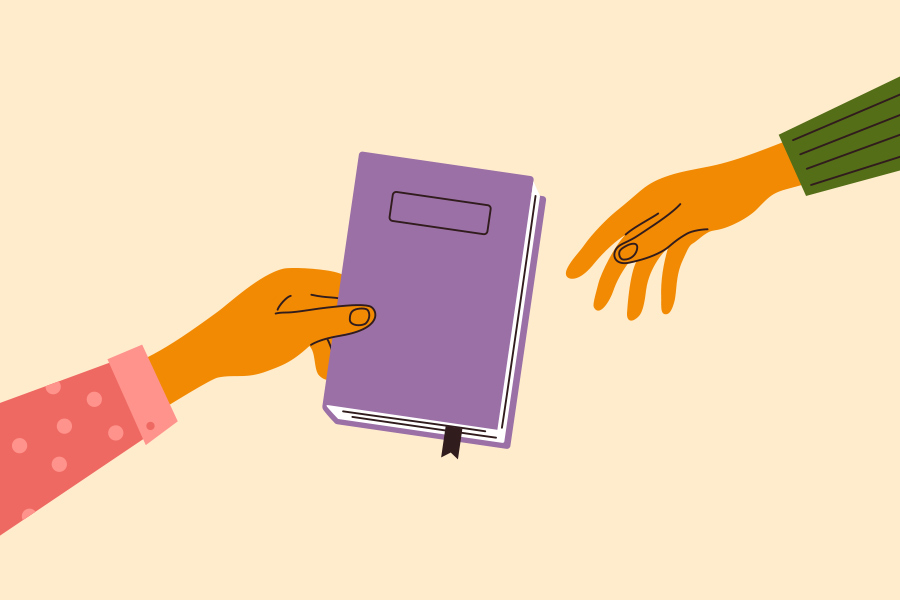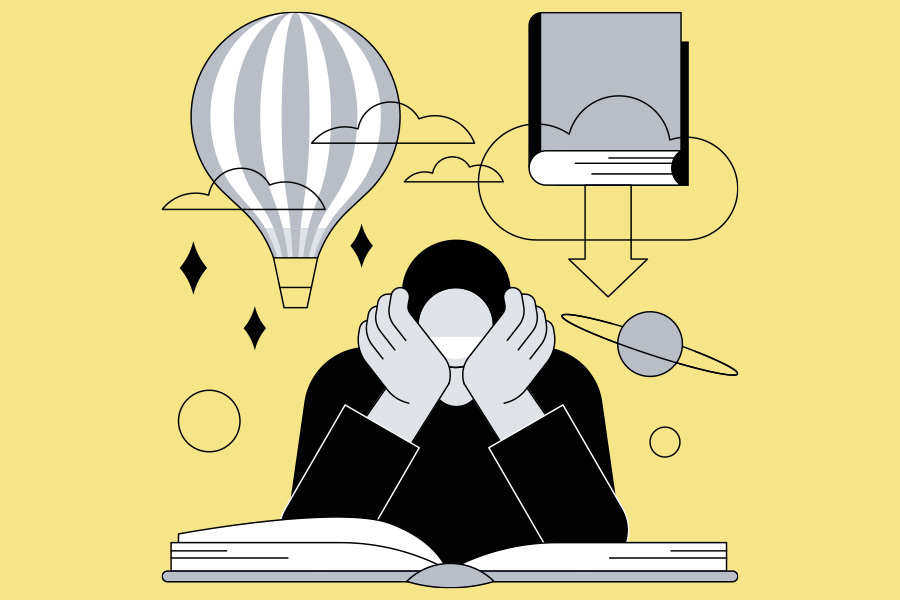It's a truth not universally acknowledged, that reading has slowed, stalled and stopped altogether in the hustle-and-bustle of modern life.
Yet, for some readers, turning a single page feels like a luxury, while for others, the mental energy required to focus on a story has quietly evaporated. What was once an effortless escape, has now become a distant habit, replaced by pea-sized attention spans, endless scrolling, or simply staring at the ceiling after a long, hard day at work.
On this National Book Lover’s Day, My Kolkata spoke to bookworms and mental health professionals from Kolkata and beyond to explore why even voracious readers find it difficult to read now, and how we can keep the spirit of words alive.
The lives of bookworms then versus now

Most of us feel tempted to relax with a show or movie on OTT platforms when we are tired from work and daily chores Shutterstock
For bookworms, reading has always been therapeutic. It used to be the perfect way to unwind. Think: a cosy corner, a cup of tea, and losing yourself in the smell of old pages. But in today’s world, this seems far from reality.
Most of us feel tempted to relax with a show or movie on OTT platforms when we are tired from work and daily chores. “Watching content feels easier than picking up a book, mostly because I don’t have to actively concentrate or immerse myself as much,” says 30-year-old Shahana Bhattacharya. “It's a bit difficult nowadays to switch gears and settle into reading as often as I did during my teen years.”
Many avid readers struggle to retain what they’ve read — whether it’s words slipping away or trying to stay focussed through a single page. Like several other booklovers, Shahana, a resident of Southern Avenue, finds it difficult to recall certain plotlines or character names after finishing a book in the long run. “Recently, I found myself unable to remember some plot lines in the Sea of Poppies, which prompted my husband to quip that I have not really read the book,” she mentioned.
Srabani Bhattacharya, a copywriter by profession, shared a similar experience. “After reading a novel which I loved, I’ll struggle to remember the name of the characters or sometimes even the plot just a week later,” she revealed. A resident of Teghoria, the 29-year-old shared a hack, saying that discussing the book with someone helps to keep what we have read in mind.
For some, however, the challenge isn’t exhaustion at all, but a tug-of-war with social media and its distractions. Tarashree Ghosh, an avid reader from Michaelnagar, says reading recharges her mental battery rather than drains it.
A common post-work pattern for many readers nowadays is to lie down and switch off completely. For some, like Mumbai-based Vrushali Wani, even scrolling on social media sometimes feels like a chore. “It’s funny because I used to finish two books a week when life was more relaxed and I wasn’t working full-time,” Vrushali, 26, remarked.
Sometimes, readers are also preoccupied with a dilemma between tending to priorities and relaxing with a book. T. Tejaswini from Jajpur, Odisha, explains that tussle in her mind: “My brain constantly bargains with should I be reading for joy, or should I be working?”
When the mind wants to, but the body doesn’t

People are becoming habituated with digital technologies, leading to lack of patience in general. This attitude doesn’t help us to develop and sustain attention, says a psychologist Shutterstock
Feeling mentally scattered is mostly due to our brains adapting to the fast-paced, high-reward nature of digital content, explains Rimpa Sarkar, a Mumbai-based clinical psychologist.
“Even when we’re not actively using our phones, the constant stream of notifications keeps our brain on alert. The fear of missing out (FOMO) whether it’s on friends' updates, influencers, or news, further fuels this need to stay connected and reactive. Neurologically, every ping or scroll releases a small dose of dopamine,” she said.
Platforms like Instagram or TikTok offer instant rewards, which our brain craves. “For most people, this behaviour is a mix of passive dopamine seeking and emotional numbing,” Sarkar further elaborated, adding that it’s important to find unwinding activities that are restorative, not just reactive.
“It's also important to let go of the pressure to finish books. Not all books are for everyone. Read what you can, when you can, how you can. It’s not about quantity, it’s about keeping the connection with stories alive,” added the expert.
Citing lifestyle as the root of the problem, psychiatrist Prabir Paul from Chetla-based Iswar Sankalpa, said, “People are becoming habituated with digital technologies, leading to lack of patience in general. This attitude doesn’t help us to develop and sustain attention.”
Chronic stress, anxiety, poor sleep and overuse of technology are also among the causes for adult inattention, Debasish Sanyal, a professor of psychiatry at KPC Medical College, revealed.
Rituals to tune in

Shutterstock
From ditching phones and reading a book before going to bed to using progress-tracking apps and literary Pinterest boards, booklovers refuse to be bogged down by the stress of the hustler life.
Although there has always been a debate between physical books and e-books, preference is key in today’s time. Srabani highlighted the ease that comes with reading e-books as the features — font zooming, scrolling, and progress bar — motivates her to read on.
Audiobooks, on the other hand, are a life saver for Aishi Chatterjee, an avid reader and media executive. “I also reach for poetry, essays, or graphic novels when I’m short on time or energy. They give a sense of completion without the pressure of long reading sessions,” she shared.
Whenever she finds herself reading portions of a book without the words getting lodged in the mind, Aishi practises a simple trick: Taking a quick break to reset and shifting to a lighter, lesser plot-driven genre. Re-reading sections aloud also works the charm for the devoted reader.
Graphic novels or webtoons also help those like Vrushali who spend most of their time commuting to and from the office.
Tarashree has a unique approach to revive the love for books. “I regularly give friends books even if they aren’t readers, because I believe in the ‘compound interest’ of a growing bookshelf. The more books around you, the more likely you’ll pick one up one day,” she says.
Even though an indolent evening spent in scrolling feels relaxing, most of us often feel guilty for whiling away the time. To avoid it, Tejaswini re-reads her favourite books, goes through old highlights and indulges in poetry books.
On this day celebrating bookworms and their undying love for books, perhaps the question isn’t about whether we have lost the habit of reading. Rather, it is about how we can make space for it again in the era of reels and revive the time when reading was natural, not a burden.
